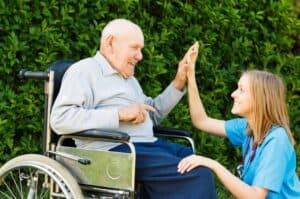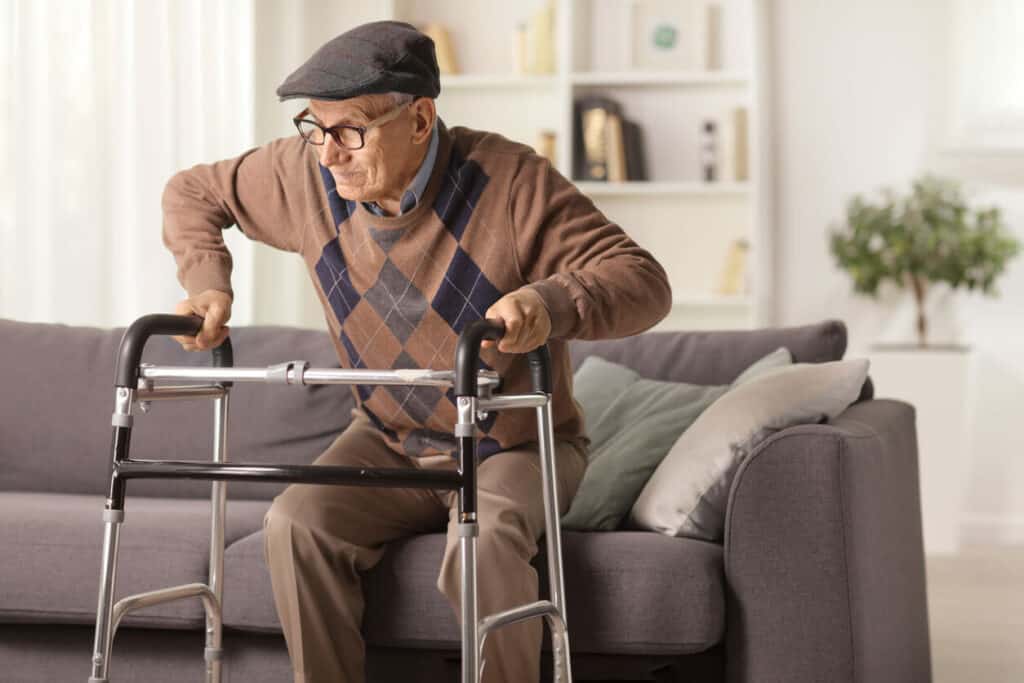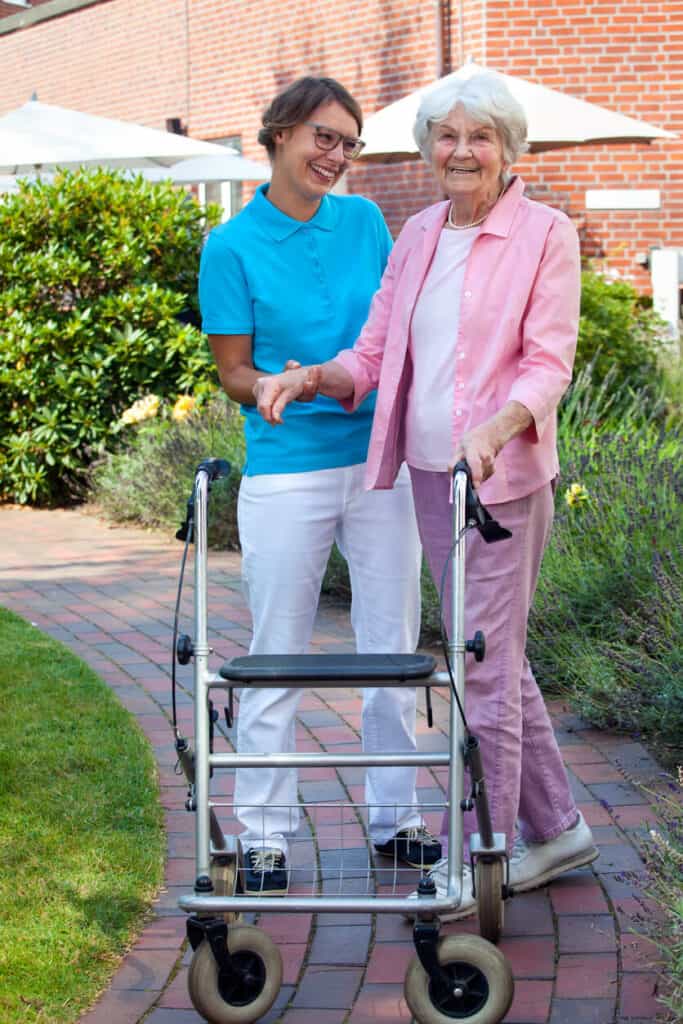
8 Memory Care Requirements That You Need to Consider Before Committing Your Loved One
Have you noticed a decline in cognitive and memory abilities as your loved one ages? In some individuals, this decline can be more pronounced, resulting
Incontinence is any accidental or involuntary leakage of urine or feces. This condition can occur to anyone, irrespective of gender or age, although it’s more prevalent in older people or people with chronic health issues.

When your loved one has incontinence, it doesn’t mean they constantly wet themselves. Sometimes it can involve the urgent need to use a bathroom or losing a small amount of urine when coughing or sneezing.
Studies show that over 33 million American adults sometimes suffer from temporary or chronic incontinence. Incontinence can have a massive impact on your loved one’s life and, at the same time, add a significant burden to you as their primary caregiver.
Early diagnosis will help you and your loved one develop a good incontinence care routine.
At Amy’s Eden, we help seniors experiencing incontinence continue to live a quality life. By developing a proactive incontinent care routine, we help your elderly loved one manage their symptoms and reassure them they can leave the rest of their golden years in dignity.
One of the most common incontinence is urinary incontinence, and some of the earliest signs and symptoms to look out for when you are taking care of your loved one include:
Sometimes urinary incontinence may resemble other health conditions, making it imperative to visit your loved one’s healthcare provider for a proper diagnosis.
Incontinence varies with individuals, and you should encourage your loved one to seek medical attention as soon as possible.
There are different types of urinary incontinence in the elderly. They include the following:
A senior might suffer from urgency incontinence when they cannot hold urine until they can reach a restroom. Your loved one may complain of having the urge to urinate often or a sudden and strong urge to urinate.
Although this is the first sign that a senior may have urinary incontinence, you should urge them to seek medical assistance as it may indicate a different medical condition.
Urgency incontinence usually results from infections, diabetes, Parkinson’s disease, Alzheimer’s disease, stroke, multiple sclerosis, or a neurological disorder.

Your loved one will suffer from stress incontinence when they involuntarily pass urine when coughing, laughing, exercising, sneezing, or lifting heavy objects that put pressure on their bladder.
A senior will have functional incontinence when they can’t reach the restroom in time due to a medical condition like arthritis or a disability. Sometimes they may experience functional incontinence due to a physical or mental impairment that hinders them from using the restroom on time.
For example, if your loved one reaches the toilet quickly but fails to unbutton their pants, they will wet themselves.
This incontinence occurs when an older person produces excess urine that their bladder can hold. Additionally, they will experience constant and frequent urine leakage when their bladder doesn’t empty. Overflow incontinence may occur in men due to an enlarged prostate, spinal cord injuries, and diabetes.
When diagnosing urinary incontinence, your loved one’s geriatrician will consider the following issues;
If a senior has a sudden change in their level of alertness due to a medical condition, they may fail to reach the restroom in time and wet themselves.
Your loved one may experience delirium — be confused or dizzy and fail to reach the toilet in time, or when they arrive, they forget why they went there in the first place. This confusion could result in urinary incontinence.
An infection, especially in the urinary tract in seniors, usually results in pain, confusion, burning, having the urge to urinate frequently, or incontinence.
This is a condition where the genital and urinary tissues shrink, resulting in urinary incontinence. Your loved one’s doctor or healthcare provider could prescribe some creams and gels to help with topical hormonal therapy.

Some of the medications that can worsen or enhance urinary incontinence in your loved one include:
Some psychological disorders like depression and dementia could significantly worsen urinary incontinence when a senior’s health is severely affected or impaired.
Some medical conditions, like heart failure, may lead to excessive urine output, which could result in incontinence.
Some indications that your loved one suffers from incontinence due to heart failure may be swollen feet and shortness of breath. When you notice these signs on your loved one, you must immediately seek medical attention.

Sometimes your loved one may have urine incontinence due to mobility and balance issues. Suppose an older adult can not reach the restroom on time due to a medical condition that affects their balance and mobility, like Parkinson’s disease or arthritis. In that case, there is a high possibility of them wetting themselves.
Although your loved one will be at a greater risk of pressure and fall injuries due to incontinence, you do not have to worry if your loved one is battling with incontinence, as various management methods can ensure your loved one leads a quality life.
Incontinence is a topic that most seniors would rather avoid, especially with their loved ones. However, this topic is prevalent among most seniors who feel hopeless and suffer in silence. Incontinence can be messy, and be a great source of discomfort, stress, and embarrassment to your aging loved one.
As a caregiver, incontinence in the person you care for can be stressful as you always try to minimize accidents and clean the mess.
Fortunately, incontinence management and care strategies will ensure your loved one has a fulfilling life with nothing holding them back. Additionally, these care tips will lessen your workload as their caregiver.
Even after taking your loved one to their doctor, the treatment may take a while before taking effect. This calls for you as their caregivers to ensure the person you care for is comfortable.
Talk openly to them about incontinence and ensure you are calm during this talk. Remember, your senior’s dignity is at stake. Be patient, and reassure them.
Some of these strategies include:
When you realize your loved one is suffering from incontinence, one of the first steps is to have them discuss the issues with their healthcare provider. However, you can talk candidly with their doctor if they cannot do so. Their doctor will provide insight into the incontinence’s cause and a strategy to overcome this challenge.
Most seniors take medications to control their blood pressure; unfortunately, frequent urination might become a side effect of these drugs.
Your loved one’s doctor may recommend other incontinence management care options like intermittent catheterization.
Keeping a track record of your loved one’s fluid intake will help you understand their incontinence pattern and plan better. Record what they drink, the number of times they drink, the amount of their fluid intake, and when they have incontinence.
Note how many times they successfully make it to and use the restroom. Keep this record for 2-3 weeks, and observe the emerging pattern.
Another way to ensure your loved one is comfortable is to buy and utilize absorbent products. Some of these products include:
When you realize that your loved one is struggling with an occasional leak, you can ask them to use pantyliners, pads, or disposable briefs to ensure they are comfortable, especially when stepping out of their homes.
Making a daily routine for a senior is crucial in managing incontinence, especially if they have dementia or Alzheimer’s disease. A daily routine will make them accustomed to going to the toilet at certain and regular times.
You can ask your aging loved one to use the bathroom even when they don’t have the urge to; ask them to try. You could start this by asking them to use the bathroom at 1-2 hour intervals. When you consistently practice this, their bodily functions will get used to it, and you will reduce their chances of wetting themselves.

When you realize your loved one has incontinence, help them find the public restrooms where they intend to visit. Also, encourage them to meet with friends at a site near a public toilet.
If they are going to have a meal at a restaurant, let them sit near the restrooms and, if possible, on an aisle where they can easily access the toilet. Additionally, you can encourage them to use the restroom before leaving home or as soon as they arrive. This will boost their confidence, as the chances of wetting themselves are minimal.
Embarrassment and anxiety usually accompany incontinence, which can be stressful for you and your loved one. Treating this as a normal situation will help ease the tension.
Remain calm and let your elderly loved one know that there is nothing to worry about or feel ashamed of. After letting them know it’s okay, clean up the mess with a matter-of-fact approach, ensuring there is no room for them to feel guilty or embarrassed.
Once the mess is cleaned up, humor can come in handy, as it will help diffuse the tension. It will also ensure that your loved one retains their dignity and that you are respectful. Always find the silly and humorous sides of things, as this will put a smile on both your face and your beloved senior.
For example, you can jokingly tell them, “Now we have had a perfect opportunity to change into that beautiful dress. I know you were looking for an excuse to put it on!”

Cleaning plays a significant role when caring for an older adult with incontinence. You will want them to be clean, the furniture dry, and the house smelling fresh.
You can easily clean the clothes and bedding; however, cleaning something like a mattress will be challenging.
To ensure your loved ones’ home is fresh and cleaning is easy, you can waterproof the surfaces your loved ones use most of the time, like the sofa, chairs, and mattresses. When you waterproof these surfaces, you will minimize leaks and odors.

Incontinence should not limit your loved one’s freedom. Your loved one can leave and have fun with their family and friends. When stepping out, pack a care kit with essentials like a change of clothes, disposable briefs, pads, and cleaning wipes.
You will feel at ease, and your loved one will have a confidence boost as they know they have something in case they need it.
Having a wardrobe upgrade to easy-to-change clothes for your loved one is one way of minimizing incontinence. Sometimes, clothes that are tough to remove could be one of the contributing factors to your loved one’s incontinence. They may enter the bathroom on time but fail to get out of their pants and wet themselves.

With diet modifications, your loved one will be able to avoid taking bladder irritants like:
To manage incontinence, encourage your aging loved one to avoid a lot of fluid intake. If you realize some foods trigger your loved one’s incontinence, try removing an item at a time and note changes if any.
Your loved one’s doctor will determine the specific treatment option for incontinence that caters to their needs. When choosing the ideal treatment option, their doctor will consider the following:
After determining the ideal treatment option for your aging relative, their doctor may come up with one of the following:
This treatment option aims at improving a senior’s pelvic muscle tone and helps prevent leakages. For pelvic muscle rehabilitation, your loved one’s doctor may recommend the following:
These therapies include bladder training and toileting assistance.
The aim of these treatment options is to teach older adults how to resist the urge to use the restroom when they are not ready.
During behavioral therapy, a healthcare provider teaches older adults how to schedule their toileting and use the restroom to minimize the risk of accidental urine leakage.
Some of the medications that doctors recommend for incontinence care for your older relative include:
Although most people think incontinence is part of aging, you should not take it as the norm. Ignoring incontinence and thinking it’s part of aging will be detrimental to the overall health of an older adult. It is essential to seek medical attention and stick with the treatment plan.
Incontinence in older adults, if left untreated, can be detrimental to:
Incontinence can be embarrassing, especially when you keep changing clothes and bedding. Your loved one may start feeling like a burden to you.
Apart from the discomfort of rushing to the restroom now and then, there are other ways that incontinence can affect your loved ones. They include:
While the physical impact of incontinence on a person is enormous, its effect on their mental well-being can be devastating. Most seniors with incontinence have to deal with mental and emotional burdens. They try to hide their condition from their close friends and family due to the shame and embarrassment accompanying incontinence.
You will notice a decrease in their social activities as they try to hide their situation from their loved ones. The problem could lead to depression and other mental conditions due to psychological stress.
Unfortunately, incontinence not only affects your loved one’s mental well-being, but it can also affect you as their caregiver. It will sadden you to watch your aging loved one struggle with incontinence. The situation may make you feel hopeless, but you must remain strong for your loved one and look for ways to make them feel loved and comfortable.

Incontinence might affect you financially, as the cost will weigh heavily on you. It would help if you started planning on pads, disposable briefs, etc. Incontinence care is expensive and could also drain your loved one’s savings. These expenses include doctor visits, medications, buying absorbent products, laundry, and easy-to-wear clothing.
Apart from these expenses, your loved one may stop working altogether due to the stigma associated with incontinence. This will negatively affect their source of income and may lead them to depend solely on their loved ones.
Incontinence care for older people is sensitive, and you must handle it with care. Although incontinence is not always preventable, there are some tips that you can employ to minimize the risk to your loved one. You can ensure they regularly practice pelvic floor exercises, eat a healthy diet, and maintain a healthy weight.
Communication is vital when caring for someone with incontinence; let them know you don’t mind changing and cleaning up the mess. Work together and develop a daily schedule to help reduce incontinence risk. Keep going even when there are no instant results; consistency is the key here.
If your elderly loved one is experiencing incontinence, and you want a caregiver to relieve your duties temporarily, or provide long-term care, don’t hesitate to reach out to us.
At Amy’s Eden, our caregivers are equipped to provide exceptional care for seniors dealing with incontinence, so they can continue to live quality lives. Contact us today to learn more about how we can help your loved one live a quality and comfortable life.
Get care >

Have you noticed a decline in cognitive and memory abilities as your loved one ages? In some individuals, this decline can be more pronounced, resulting

When we think about healthcare for seniors, we might not think of sports therapists. They usually work with athletes and help them stay fit. However,

Are you considering physical therapy as a career option? Sometimes, you may or may not know what to expect once you become a certified physical

Do you find it harder to move around like you used to? Is chronic pain affecting your daily activities and overall quality of life? Do
